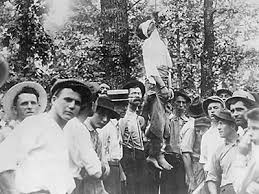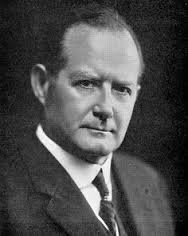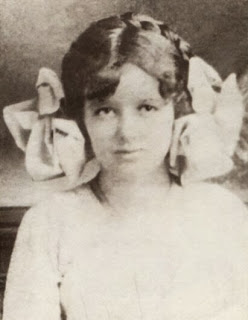When Americans Lynched a Jewish Pedophile/Murderer
May 9, 2021

from May 28, 2016
By E. Michael Jones
How the Oligarchs Got their Power
(excerpt by henrymakow.com)
Unfortunately, Georgia has a history of governors who act as if they are proconsuls for the evil empire whose headquarters are in Wall Street and Washington.

On June 22, 1915, Georgians awoke to the news that Governor John Slaton had commuted the sentence which had condemned Leo Frank, left, the Jewish pencil factory owner, [and head of the local B'nai Brith lodge] to death for the rape and murder of 13-year-old Mary Phagan. Although some Georgians agreed with Slaton's decision, most did not, and outrage quickly spread through the population, and the city's normal routine ground to a halt as people digested what had happened. Before long, the outrage which the majority of people felt at the commutation of Frank's sentence found expression when, at 8:30 AM, a mob shouting "Pay the governor a call" started marching toward Slaton's mansion, six miles away.
As some indication of what they planned to do when they got to the governor's mansion, the mob broke into hardware stores along the way in search of guns. Police Chief Beavers, along with 50 mounted men, confronted the mob halfway to Slaton's mansion, turning back roughly half of the men. Which meant of course that 2,000 armed men were still headed toward the governor's mansion. What they planned to do when they got there became apparent after another mob hanged the governor in effigy in the town square. Around the effigy's neck hung a sign proclaiming, "John M. Slaton, King of the Jews and Traitor Governor of Georgia."
In the end it was only the state militia and its machine guns and the fact that Slaton had declared martial law which saved him from the rage of the mob and the noose they had prepared for him. The reaction to the commutation followed along the lines that had already been established by the publicity campaign to save Frank. Slaton received "hosannas from the national press," and the New York Times led the way, proclaiming that if Governor Slaton were to "look beyond the boundaries of the State of Georgia, he can know and feel to how high a place he has raised himself in the esteem and admiration of the whole country. . . . Governor Slaton has saved Georgia from herself. He has made his name illustrious."
In Watson's eyes,
Slaton's commutation of Frank's sentence abolished the rule of
law in Georgia, establishing in its place plutocracy, which is to
say: "One law for the rich and another for the poor." According
to the new law those with "Unlimited Money and Invisible Power,"
can prey on young Georgia girls with impunity because "they have
established the precedent in Georgia that no Jew shall suffer capital
punishment for a crime committed on a Gentile."
Needless to say, Watson and his readers found this state of affairs intolerable, but when confronted with the question of "what are the people to do?" The only answer Watson could come up with was "Lynch law": "Hereafter, let no man reproach the South with Lynch law: let him remember the unendurable provocation; and let him say whether Lynch law is better than no law at all."

(left, John Slaton, 1870-1945)
As some indication that Watson was articulating the feelings of a significant percentage of the population of Georgia, a mob of 200 men opened fire on the governor's mansion at two o'clock in the morning of June 22, 1915, Slaton's last day in office. This was just the beginning of what was going to be a long day for the outgoing governor. When Governor Slaton left the capitol after giving his farewell address, a mob descended on his car shouting "Lynch him!" At this point a man in the mob tried to assassinate the governor.
Eventually the governor was able to escape from the mob, but he did not return to his mansion. Instead, he and his wife escaped by train to New York City, where, upon his arrival, he checked into the Waldorf Astoria hotel and held a press conference at which he was "accorded . . . the sort of welcome usually reserved for war heroes."
In a move that seemed calculated to confirm the citizens of the state of Georgia in their suspicion that Slaton had sold out to New York money, Slaton and his wife then celebrated a night on the town with William Randolph Hearst after a dinner party at the publisher's palatial apartment. After a summer-long vacation and cross-country train trip, the Slatons joined up with the Hearsts at San Simeon, Hearst's version of Xanadu on the California coast. From there, the Slatons sailed to Hawaii. If this was political exile, the Slatons seemed to be enjoying it.
As the stories of Slaton being feted by the rich New Yorkers filtered back to Georgia, the outrage spiked upward once again. The Georgians who were outraged at the commutation of Frank's sentence were even more outraged at the welcome their traitorous governor received in New York, and at a certain point a group of them decided to take the law into their own hands.

A group of 150 Marriettans joined together on the day the commutation was announced to form the Knights of Mary Phagan and vowed revenge on both Slaton and Frank. At around the same time a smaller but much more influential group of men came to the same conclusion and hatched a plan that was nothing if not audacious. They planned to abduct Frank from the state prison farm in Milledgeville, transport him halfway across the state, and then hang him in Marrietta, Mary Phagan's home town. Tom Watson was informed of the conspiracy to murder Frank and kept up the drumbeat of publicity throughout the summer of 1915. On August 12, 1915, in response to a blatantly pro-Frank documentary produced by Hollywood's Marcus Loew, Watson wrote: "Let the rich Jews beware! . . . THE NEXT JEW WHO DOES WHAT FRANK DID IS GOING TO GET EXACTLY THE SAME THING THAT WE GIVE TO NEGRO RAPISTS!"
Then, on August 17, the cabal carried out its threat. Frank was abducted from the state prison farm in Milledegeville, transported to Marietta and hanged. The lynching of Leo Frank set off an orgy of vituperation in the press of the sort the nation had not seen since the hanging of John Brown. Newspaper after newspaper condemned the South, in the words of the Chicago Tribune, as "a region of illiteracy, blatant self-righteousness, cruelty, and violence. Until it is improved by the infusion of better blood and better ideas it will remain a reproach and a danger to the American Republic."

(left, Americans are now too busy extending central banker domination to defend their own freedom.)
"If Georgia approves lynching," opined the New York Times, "then honors bestowed upon the lynchers would attest to the shameless courage of the Georgia public and its willingness to defy public opinion in the other States of the Union." And for good measure, the Akron Beacon Journal added, "Georgia is a good place for every decent man and woman to stay away from."
Which is precisely what the CEOs and homosexuals were saying about Georgia in the spring of 2016.

You can find this article permanently at https://henrymakow.com/2021/05/when-americans-lynched.html
No comments:
Post a Comment